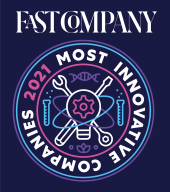As businesses, in general, become more aware of the importance of building a diverse, inclusive workforce, restaurants across the country are taking steps to ensure that their staff—from corporate headquarters to the waitstaff—is reflective of the communities they serve.
Here are some ways in which restaurants across the country are working to build and maintain more diverse and inclusive workplaces.
Diversity officers
One step that many restaurant chains have begun to take is the appointment of specific individuals to establish and guide their companies’ diversity and inclusion efforts.
These appointments include Chequan Lewis as Chief Equity Officer at Pizza Hut, John Mays as Director of Equity and Inclusion at KFC, Heidi Capozzi as Global Chief People Officer at McDonald’s, and Senior Vice President for People at quick-service chains Checkers and Rally’s, Marna Killian.
This is just a small sampling, but it’s a list that highlights an increased effort on the part of restaurant chains to ensure a greater focus on inclusion and diversity in their workplaces.
Actions taken
All these appointments have resulted in a variety of actions and concerted programs designed to guide each of these restaurant chains toward a more inclusive future.
Yum Brands, the parent company of KFC, Pizza Hut, Taco Bell, and The Habit Burger Grill announced in June their new “Unlocking Opportunity Initiative,” a $100 million program that aims to expand funding of education and skills training and to increase the representation of people of color and women among franchisees and suppliers as well as executive and management teams. The initiative also includes an investment in entrepreneurs from traditionally underserved communities.
McDonalds’ Capozzi undertook a wholesale review of the human resources department, utilizing surveys and employee listening sessions to build a company-wide cultural assessment. She also reviewed processes for how employees are hired, how performance is evaluated, and how employee concerns are raised and investigated, looking both for “bright spots and blind spots we have around our values.”
Killian from Checkers and Rally’s has held similar sessions in which people can speak openly about any issues they might have. For employees who have grown accustomed to being marginalized, however, it’s not always easy to get them to open up. Nevertheless, Killian said the response was positive, with about 100 people participating in the first session.
“I didn’t want people to feel intimidated or nervous about speaking up. …But the amount of people who shared stories on that call and put things in the chatbox means we did make it a safe space,” she said.
In fact, “a lot of people were really relieved that we’re finally talking about it, which is one of those eye-opening things that we see. We’re a diverse, inclusive company. We believe that, but you know what? We don’t talk about it. We’ve got to make it comfortable for people to talk about,” she said.
Checkers & Rally’s also took the additional step of sending operations leaders through unconscious bias training.
“They’re going back to school and learning more and more about how to get people to open up,” said Killian, “how to make a change in your organization, how to sustain these initiatives. Because a lot of times companies start, and then it drops off, so it’s important that we continue the momentum.”
Pizza Hut’s new equity chief, Chequan Lewis, adds that you can’t just hire people with different experiences—you have to embrace those differences.
“When you’re a person of color or a woman or a member of the LGBTQ+ community, you may not be comfortable contributing your vantage point to a decision about a business topic because you’re used to living life out on the margins,” he said. “But when we start centering the experiences of other people that are different than our own, we broaden the scope of our conversation and broaden the ability of people to contribute. [The result is] this explosion of ideas from totally different perspectives, and you solve problems in a different way.”
Whatever the actions or tactics taken, it’s obvious that recent events have driven many in the restaurant industry to reexamine their practices and company cultures when it comes to diversity and inclusion. Here’s hoping it’s a trend that continues well into the future.





